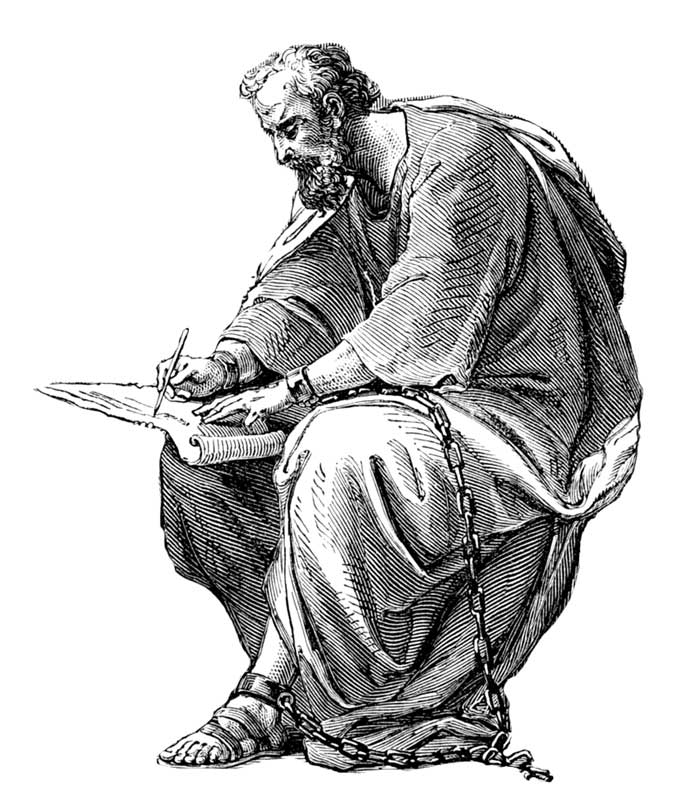Paul suffers from the division of Israel, ready to renounce to Christ in order to bring the Jewish brothers back to Christ. The fanaticism of the persecuting Saul has been transformed into absolute zeal for the Christian cause: it is the supreme love for the enemies, who have lost their belonging to the People of the Promise, while the pagans have become children of God and have the new Promise that replaces the old.
God, the Most Good, draws good from everything. From the first Guilt, of Eden and of the second Guilt of the Temple, He drew Redemption. Only the good-will of man is needed. No one suffered as much as Christ and His Mother, and man must become an imitator of Christ, to draw good from what God allows to happen to him. The Father had in fact loaded Christ with all the sins of the world and withdrew from Him, leaving Him alone.
No one can accuse God of evil, since this comes from man’s sin. Those who are tempted to accuse God must think about how much Christ suffered, not only at the Passion but throughout His life, when Satan, close to his defeat, unleashed his hatred against Him. By drawing good from evil, Christ was able to attain the Church for all men from the satanic rebellion of the Jews. As a father disappointed with his terrible children, adopts an orphan, so God rejected the Israelites and adopted the Gentiles as children, along with the few Israelites willing to welcome Christ.
Worthy of reproach is the Israelite contempt for the Gentiles, tenacious even among the apostles who expected the re-establishment of the Kingdom of Israel even after the Passion and Resurrection. So Israel was crushed and always will be until it is converted [5]. Even those who had never heard of Christ, if they aspired to the Good, were and will be saved, while no opponent of Christ has had and never will have victory.
The Israelites had the Law and the prophets but they only knew how to accuse Christ of being in cahoots with the devil: even if He had descended from the Cross, as they challenged Him to do, they would have said that He had done so thanks to demonic help. The Israelites had become gods to themselves. God is patient with Israel and waits, but pride prevents the Israelites from recognising the truth: they had the letter of the Law but not the spirit because they lacked humility and charity. They said: “Who is this people who dares to teach in the squares and in the streets?”, While they, the great ones, sat on Moses’ chair in the Temple. The humble Peter knew how to recognise Christ. The only apostle of great culture, linked to the clique of the Temple, was the one who betrayed him: Judas of Kerioth, damned forever.


